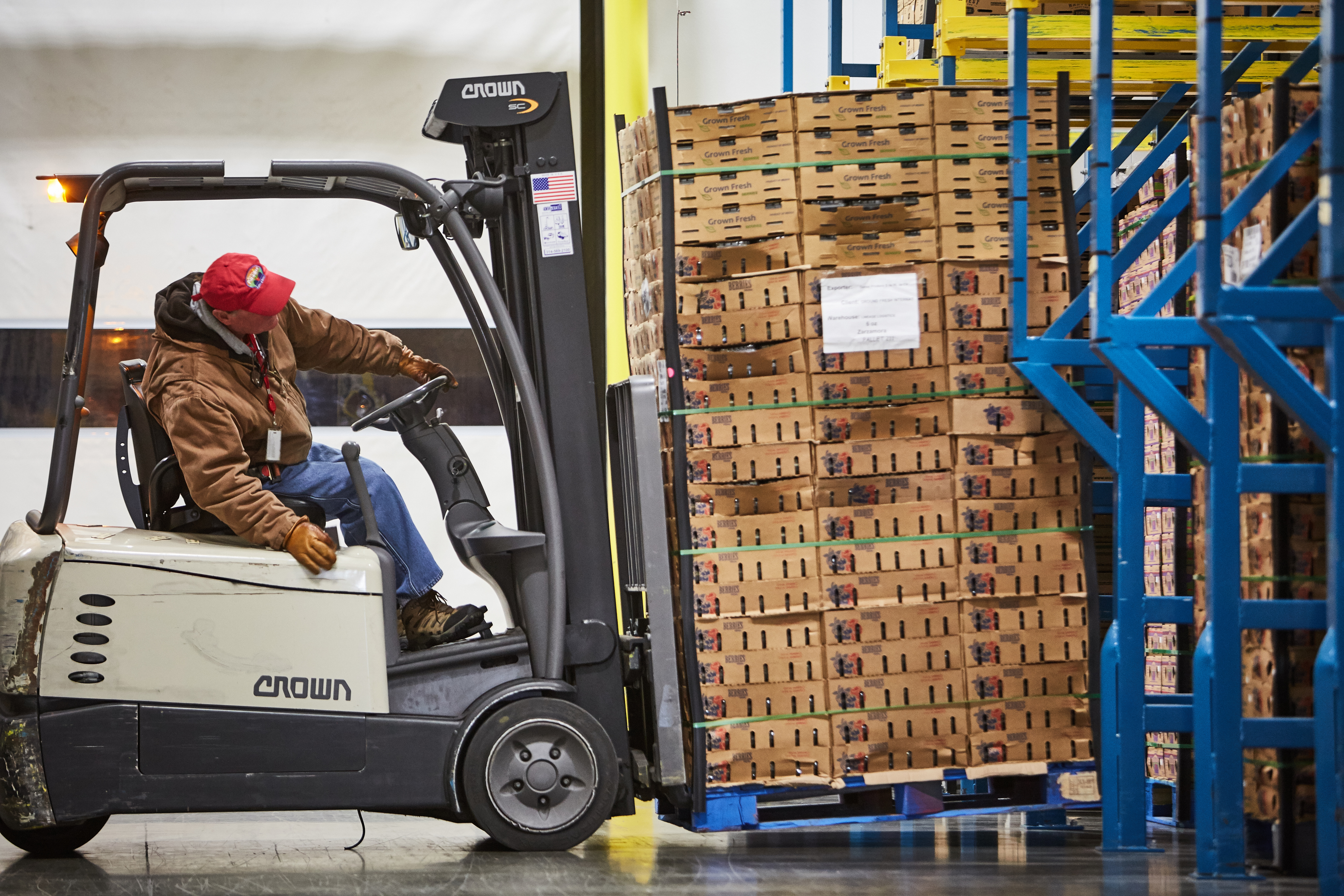
Companies need workers along every sector of the supply chain to help move goods from the point of origin to their final destination, and that need is being fueled by steady freight volume growth. While readily available jobs should be cause for excitement by job seekers, it is actually a growing concern for human resource professionals and workforce officials already struggling to the fill positions currently available.
Two sessions during FreightWeek STL in St. Louis in late May 2018, called attention to the issue and provided insight into steps that need to be taken to help fill the pipeline of workers in the St. Louis region, and nationwide, as demand for employees with the right skills continues to grow.
“The biggest challenge we end up facing is educating the general public about the job opportunities out there and how to get into them,” said panelist Steve Faust of ICON Mechanical. “It’s really a matter of going out to the public, telling them what types of opportunities are out there and setting up a path to get them into the system.”
“That is why we’re here,” said panelist Barbara Murray, executive director of TransPORTS, one of only eight U.S. Department of Labor national industry partners working to expand apprenticeships with employers and workforce intermediaries nationwide. TransPORTS is the only intermediary tasked with helping port authorities, port employers and their multimodal TDL tenants/business partners establish successful, sustainable apprenticeship programs.
Vicki Morgan, chief operations officer for Inland Rivers HR, talked about how opportunities in just that sector of the logistics industry can range from working as a deck hand for six months of the year, earning $35,000 a year straight out of high school, to working as a chef, engineer, pilot or in shoreside operations, such as accounting, marketing or human resources.
“The existing problem is awareness that the jobs are there, what the jobs are and changing the paradigm,” Murray said.
She and the other panelists agreed that changing the paradigm requires beginning in middle school, working with students, parents, teachers and counselors and educating them so they easily see the potential for careers in the logistics, freight and warehousing sector, and quickly understand the steps they need to take to move forward. The panelists agreed that can be a tall task considering that, for so long, high schools have been judged on how many students they send on to college.
Faust talked about outreach efforts he has been involved with over the past three years to change that mindset. He and other industry leaders have been working with the Leadership Council Southwestern Illinois and the region’s community colleges and workforce investment boards to connect with 21,000 students, parents and education professionals to educate them about careers in manufacturing and the trades.
“The successes we’ve seen have come through the community colleges in terms of growth in their technology programs and trade programs,” Faust said. “Their welding classes are at capacity. They are trying to come up with additional space and instructors to run just their welding programs, and that’s a real success because, in the past, they didn’t have strong enrollment.”
Murray said she has done week-long institutes for teachers for 13 years, and that each time they have people say they just didn’t know about the amazing jobs that are out there. But, now that they do, their minds are changed.
Scott Drachnik, director of the St. Charles County (Missouri) Department of Workforce Development, said that when it comes to workforce across logistics, transportation and warehousing, the same challenges they see locally are being faced across the region and around the state.
“There are such low unemployment numbers, sometimes it’s difficult to get people to show up for the job fairs or be able to pass the drug tests,” said Drachnik. “There are far more jobs than job seekers.”
Part of the solution, all panelists agreed, is getting youth out into the workplace for a behind-the-scenes look at the types of jobs available, and the types of operations where those jobs can be found. That can be early exposure through manufacturing day events or similar programs where young students get to visit local facilities or have hands-on experiences during actual apprenticeships.
“We’re looking at growing more youth apprenticeships, getting more ex-offenders involved and people with disabilities,” said Neil Perry. “Once we get the pipeline developed, we can take care of the problems.” Perry is the Missouri State Director for the U.S. Department of Labor/Office of Apprenticeship.
Murray’s organization cites a variety of reasons companies should consider an apprenticeship program of their own. Among the benefits she gave are a return on investment of $1.47 for every $1 invested, reduced worker turnover, increased productivity and the potential to build a company’s pipeline of qualified employees for advancement. Her organization can help those interested in launching a program to get started. She also called attention to the fact that there are scholarships available, noting that $142 million in federal funding has been allocated for programs for apprenticeships this year, up from $109 million last year.
St. Louis Regional Freightway, Inland Marine Expo (IMX) and the Institute for Trade and Transportation Studies (ITTS) partnered to host FreightWeek STL May 21-24. The event united freight and transportation experts as well as exhibitors from around the country to share ideas and collaborate on the forward movement of America’s growing freight industry.
First Local Workforce Development Area in the State of Illinois
St. Clair County, Illinois, recently announced the St. Clair County Intergovernmental Grants Department will be the first Local Workforce Development Area in the State of Illinois to be certified by the U.S. Department of Labor as a Registered Apprenticeship Program Intermediary/Sponsor. This important designation will allow the Grants Department’s Workforce Development Group to work with local employers to help them hire and train individuals who will receive occupational credits from the U.S. Department of Labor after they successfully complete a U.S. Department of Labor USDOL Registered Apprenticeship Program. Companies hiring eligible workers may qualify to receive partial reimbursement of wages for up to six months during the training period. Participants begin earning a paycheck on day one, earning while learning.
Those completing a U.S. Department of Labor apprenticeship program receive a certificate that can be used for college credit, without the associated costs or debt. Perry said that message can really help the parents who still want their teenagers on the college track. Drachnik added they offer a GED class at their office, and as students go through it, they are not only getting their diploma, but also getting certified in logistics technician positions.
A variety of resources are available for companies struggling to fill available positions or those interested in learning more about the apprenticeships in their area. Access helpful tools to establish an apprenticeship. The latest information on apprenticeships available in Missouri. Learn more about the new St. Clair County initiative in Illinois.
To find out more information about a truck driving and apprenticeship program offered in the St. Louis region that is officially recognized by the U.S. Department of Labor, email Evan Glantz at the St. Louis Regional Freightway.
The Waterways Journal, Inc., is a full-service media company that produces trade magazines, trade shows like IMX, directories, websites and related communications. It is a family owned business operating in St. Louis, Mo. since 1887. Through its division, Ripple Custom Media, it also produces consumer titles and provides custom publishing services.
The Institute for Trade and Transportation Studies (ITTS) is a multistate research institution formed to assist member states on understanding the relationship of transportation needs to international and commercial traffic. ITTS is incorporated as a 501(c)(3) in the State of Louisiana. Current membership consists of the State Departments of Transportation from the following States: Arkansas, Florida, Georgia, Kentucky, Louisiana, Mississippi, Missouri, Virginia and West Virginia. ITTS’s mission focuses on providing research data and expert opinions to its Members concerning the effects of commercial freight movements on domestic and international activities, with reference to infrastructure and transportation needs and safety implications.
The St. Louis Regional Freightway is a Bi-State Development enterprise formed to create a regional freight district and comprehensive authority for freight operations and opportunities within eight counties in Illinois and Missouri which comprise the St. Louis metropolitan area. Public sector and private industry businesses are partnering with the St. Louis Regional Freightway to establish the bi-state region as one of the premier multimodal freight hubs and distribution centers in the United States through marketing, public advocacy, and freight and infrastructure development. To learn more, visit thefreightway.com.





